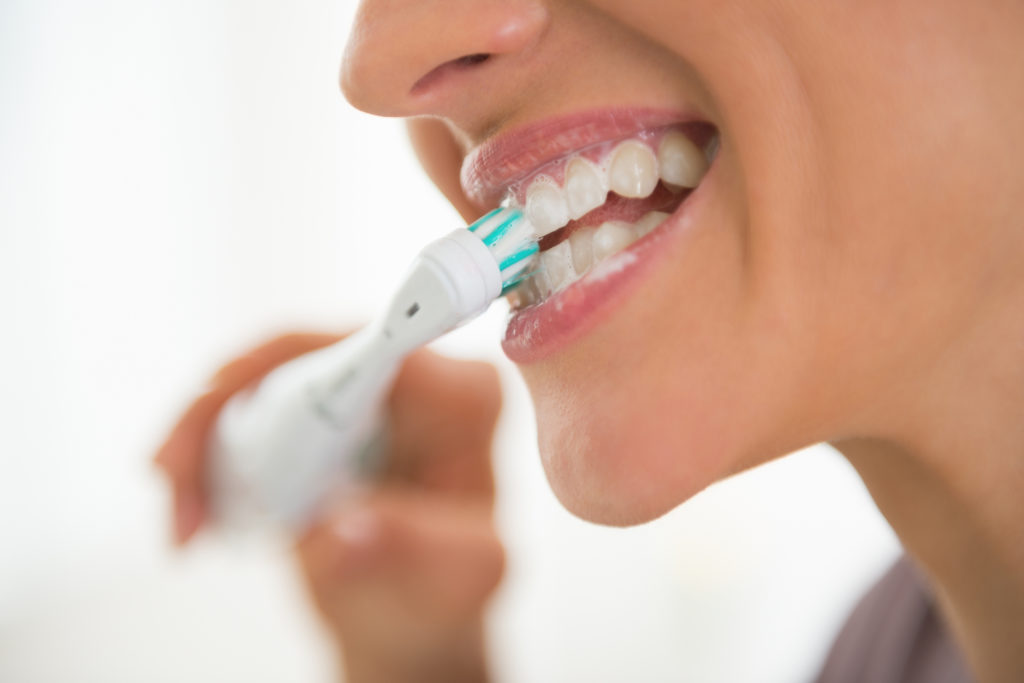
Tooth sensitivity isn’t fun for anyone. This problem occurs when the tooth’s dentin—the layer beneath the enamel—is exposed, as dentin is packed with vulnerable nerve endings. A condition often resulting from the wearing of enamel, receding gums, or tooth decay, tooth sensitivity causes discomfort and pain when the teeth are exposed to hot or cold temperatures, sugary foods, and other triggers.
If you’re considering a career as a dental assistant, it’s more than likely that you’ll encounter patients suffering from tooth sensitivity. Part of the role of a dental assistant is to advise patients on proper oral hygiene and home care practices—meaning that patients will be relying on your recommendations when it comes to preventing tooth sensitivity. Here are five suggestions which you can pass on to patients as a dental assistant.
1. During Your Dental Assistant Career, Advise Patients to Brush Their Teeth Correctly
While brushing is necessary to reduce the buildup of plaque and protect teeth from cavities, improper brushing can exacerbate or even cause tooth sensitivity. Some patients tend to brush their teeth too vigorously, or use a toothbrush with overly stiff bristles. Hard brushing can result in damage to the tooth’s protective layer of enamel, and can cause gums to recede, leaving more of the tooth exposed.

After dental assistant training, you can advise patients to brush their teeth in a way that will not worsen the sensitivity of their teeth. Tell patients to purchase a toothbrush with softer bristles, and focus on brushing in gentle circles rather than scrubbing their teeth. When they change the way they brush, patients may feel their tooth sensitivity improving.
2. Ask Patients About Tooth Grinding
Just like vigorous tooth brushing can wear away at enamel, grinding teeth together can have the same effect. If a patient complains about tooth sensitivity, ask them if they tend to grind their teeth when they sleep or when they’re stressed. While patients won’t typically be able to control when they grind their teeth, especially at night, you can recommend that patients try to sleep with a night guard. Night guards put a stop to grinding by creating separation between the bottom and top sets of teeth, preventing further enamel damage and reducing tooth sensitivity.
3. Patients May Want to Change Their Diet
A patient’s diet can be a big factor in the sensitivity of their teeth. Acidic or sugary foods and beverages can cause enamel loss over time, especially if patients aren’t brushing their teeth 20 minutes after consuming them. If you’re in a dental assistant career, you can recommend that patients avoid or reduce the consumption of foods such as soda, coffee, fruit juices, or oranges that are high in acids or sugars.

Just as some foods can reduce a tooth’s enamel, eating certain foods can help patients to restore the enamel they’ve lost. Foods high in potassium, Vitamin A, calcium, and phosphorous can all work to re-mineralize a patient’s teeth. Recommend foods such as yogurt, eggs, seafood, and lentils to boost the production of enamel.
4. Recommend a Different Toothpaste
While switching toothpastes won’t help a patient to repair their sensitive teeth, a toothpaste meant to address tooth sensitivity will help patients with the pain and discomfort associated with this condition. Toothpastes which contain potassium nitrate can block the nerve endings in the dentin, reducing the painful sensations associated with tooth sensitivity. Changing toothpaste isn’t a solution, but it’s one that can help patients until the underlying cause of the sensitivity is identified and managed.
5. Tell Patients About Fluoride Treatments
If a patient hasn’t found much success with the previous solutions, you might recommend that they consider a fluoride application treatment. Fluoride can reduce sensitivity by restoring essential minerals in the enamel, strengthening this layer to decrease dentin exposure. Patients may be eligible for a fluoride rinse prescription or an appointment for a fluoride application treatment, depending on the judgment of a dentist.
Are you ready to enroll in dental assistant college?
Discovery Community College has the program for you. Get started today!
